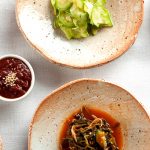When I lived in Michigan in 2006, I met a very friendly and chatty white man in his 60s in a restaurant. Upon finding out one of my friends was ethnically Vietnamese, he immediately asked if her last name was Nguyen. When my friend told him otherwise, he was not only disappointed, but even slightly offended his “Asian insight” was disputed. He challenged:”How could it be? Don’t all Vietnamese have the last name of Nguyen?”
I never blamed him for this somewhat “racist” question. Mostly because Asian American population was rather small 10 years ago in the midwest. After all, he did bring up an interesting point. Although it is not true all Vietnamese share the same last name, but it does feel like we all know quite a few Vietnamese ourselves with the last name of Nguyen. So, was his intuition correct?
According to Wikipedia, about 40% Vietnamese have the last name of Nguyen, which makes it the most common Vietnamese last name. Besides Nguyen, the other 13 most popular Vietnamese last names make up 90% of its total population. Putting that in perspective to Americans, the 14 most popular English last names represent only 6% of total population in the U.S.
In the U.S., an immigrant country, last name is a critical part of our identity. It is an important indicator of our origin, occupation of our ancestors, when our ancestors immigrated, and even their social status. That’s certainly not the case for Vietnamese. Until the Chinese domination back in the Han Dynasty, Vietnamese didn’t even have last names at all. People were referring each other with “patronymic” names, meaning your full name would literally translates as something like “Steve, son of Bob.” This is not entirely surprising as people lived in smaller communities back then and everyone knows each other.
The usage of last names in Vietnam started with a rather bureaucratic reason that came with the Chinese’s domination: taxation. When Chinese conquered new land, they had to figure out a way to document its new citizens so they could start collecting taxes. This turned out to be a difficult task without last names since it is impossible to monitor who has paid or not. To solve this problem, the Chinese started handing out last names to people. Making it even easier, the Chinese senior administrators decided to use their own last names to designate people under their own districts.
The reality is last names never became a fundamental part of Vietnamese culture, unlike the other Asian countries. It is just not how Vietnamese refer to each other or think about themselves. Because Vietnamese language has no pronouns, people refer to others by their given name, and add some kind of family-based modifier in the front which indicates the relationship between the speaker and listener. It is actually impolite to address other people by their full name most of the time. For example, If you’re talking to your good friend Dũng, and he’s about the same age as you, you might call him Anh Dũng, meaning “Brother Dung.” To indicate age or gender differences to show respect, you might substitute “Anh” with “aunt,” “grandmother,” or “child.”
Because of this very reason, last name never had significant meanings in the Vietnamese culture. Instead, Vietnamese people have tended to take on the last name of whoever was in power at the time. It was seen as a way to show loyalty, a notion which required the relatively frequent changing of names with the succession of rulers. After all, you wouldn’t want to be sporting the last name of the previous emperor. Guess what’s the last name of Vietnam’s last ruling family? Nguyen it is. Their rule lasted 143 years until 1945 when the modern government took power. That’s why Nguyen remained to be the most popular Vietnamese family name ever since.







